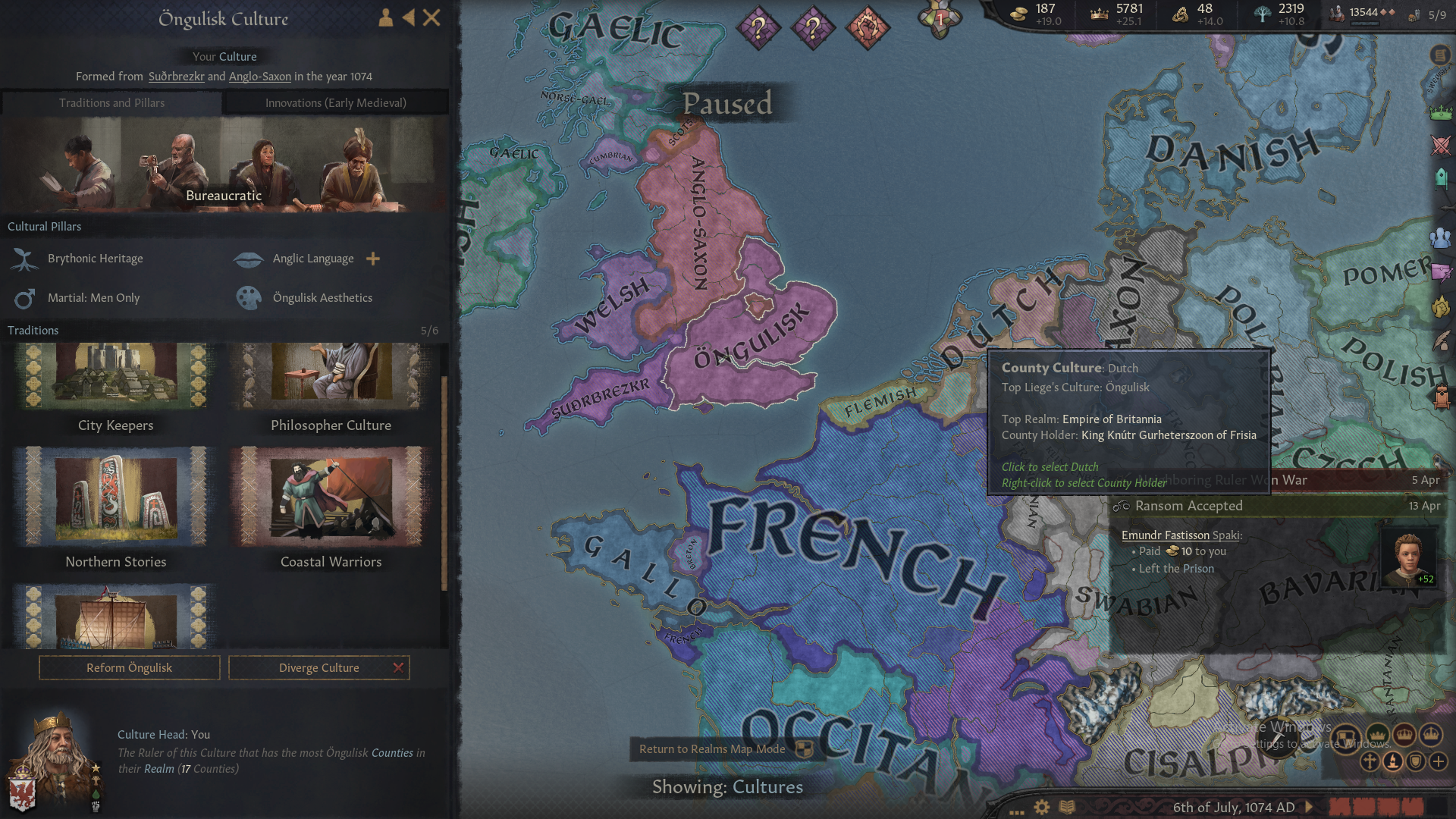I think you might be getting some facts confused mate. The South did not have any significant Danish and/or Norse settlement. Greater Wessex (Wessex, Kent, Sussex, Essex), and Western Mercia were spared from Scandinavian control until the reigns of Sweyn and Cnut. Guthrum did control Wessex for a time when he forced Alfred into exile after Chippenham, but there was no settlement of Danes during his brief reign there.
The North did experience a large degree of Danish settlement however. East Anglia, Eastern Mercia (also known as the Five Boroughs), Deira (York/Jorvik), and Cumbria experienced a great degree of cultural blending as Halfdan and subsequent Danish rulers divvied up the land among their followers. The only area of the North that did not experience as heavy cultural blending was Bernicia, where native Anglians ruled as vassals to the kings of York, but even there had some Danish settling in.
Not only did the invaders settle here, but the Kings of Jorvik also frequently sold land to other Scandinavians which did not partake in the conquest, many of these buyers would found entirely new settlements, which can still be seen today as they often end in the suffixes -thorpe, -by, -holme, or -firth.
As for the Scots, well their origin actually lies in the Northernmost part of Bernicia (the part least settled by the Danes). Their language however does present large Scandinavian influence too, like that of the English. They would be one of the building blocks of the Kingdom of Alba/Scotland, which was the melting pot of Britain at the time with heavy Pictish elements (especially in Moray), Norse (not Danish, mostly in the Isles), British (Strathclyde, Galloway, Cumbria), and Gaelic (the Irish descendants from Dal Riada).
The Anglo-Saxons were actually a myriad of tribal groups actually, Angles and Saxons (obviously), but also Jutes, Frisians, Taifals, Franks, along with other Germanic peoples that had moved to England prior to the withdrawal of Rome in 409, serving as Laeti/Foederati. These groups held great animosity toward each other regardless of shared language, culture, or religion, and it took a long time for shared regional identities to form (West Saxons, Mercians, Bernicians, etc). A shared Anglo-Saxon/English identity was the project of King Alfred of Wessex and his descendants, and took several generations. Even during the time of the Norman Conquest, the people of Northumbria still did not fully consider themselves English, and often times clamored for Scandinavian rule rather than Southern English. They embraced Sweyn and Cnut, many sided with Tostig and Harold Hardraada (despite being Norse and not Danish).
Religion was NOT the issue of the day. There is almost no record of religious-inspired violence taking place, it was all mostly political. The clergy of York was quick to side with Halfdan and the Kings of Jorvik, and the Danish settlers very quickly converted to Christianity in fact. There is no evidence of the English reverting to pagan ways. In fact, illuminated scrolls and paintings of the era show Christian iconography heavily influenced by Scandinavian artistic styles, not the other way around. Christianity continued to spread freely during Danish rule. The Archbishops of York were key allies of the Danes (even when they were Pagan) and a large part of their continued success in the North (without Church support, the Danes would've been toast).
We actually know surprisingly little about how slavery was actually conducted in a day-to-day basis in England during this time, but from what we know it was certainly not what we'd consider chattel slavery. In fact what records we have concerning slaves often make it difficult to distinguish who was and wasn't a slave, as often their conditions were fairly similar, especially in the latter Anglo-Saxon period as society had stratified to an insane degree. No contemporary record shows William using abolishing slavery as justification for his conquest, and the Normans in fact enslaved a large amount of English people during their conquest, especially in Sussex where they landed.
As for gameplay, it very much makes sense for there to be several cultural groups of Germanic peoples, as their cultural practices were quite distinct from each other.
Central Germanics were very much interested in claiming the mantle of Rome, as many of them were heavily Romanized when Rome "fell," and would later claim to be their successors through the HRE. The legal codes of Germany and the Lowlands thus would heavily resemble that of the Romans, as the Franks were as Romanized as can be without being outright Roman. The Scandinavians certainly knew of Rome, but they fell entirely outside of the Roman scope and thus had no claims or relation to any descent from them. In many ways the Scandinavians were to the Germanic peoples what the Picts were to the Brythonic peoples.
The Anglo-Saxons meanwhile came from areas not as heavily Romanized and thus had different practices from that of continental Europe, but their close proximity to Merovingian and later Carolingian France did lead to a lot of cultural bleed, making them the halfway group of the three, not to mention the fact that many Roman structures and buildings would form the skeletons of future Anglo-Saxon settlements and towns. Basically Central Germanic = Romanized Germanics, Anglo-Saxons = Kinda Romanized Germanics, Scandinavians = Not at all Romanized Germanics.
 ).
).

